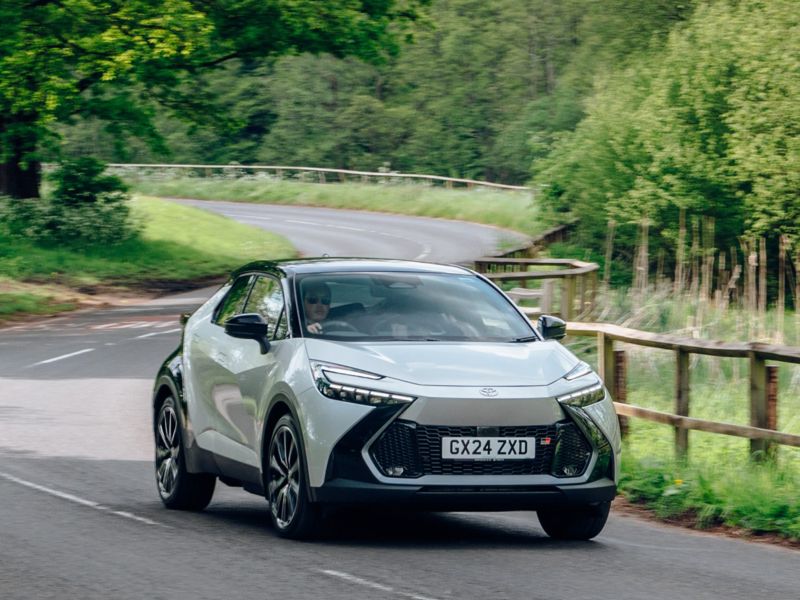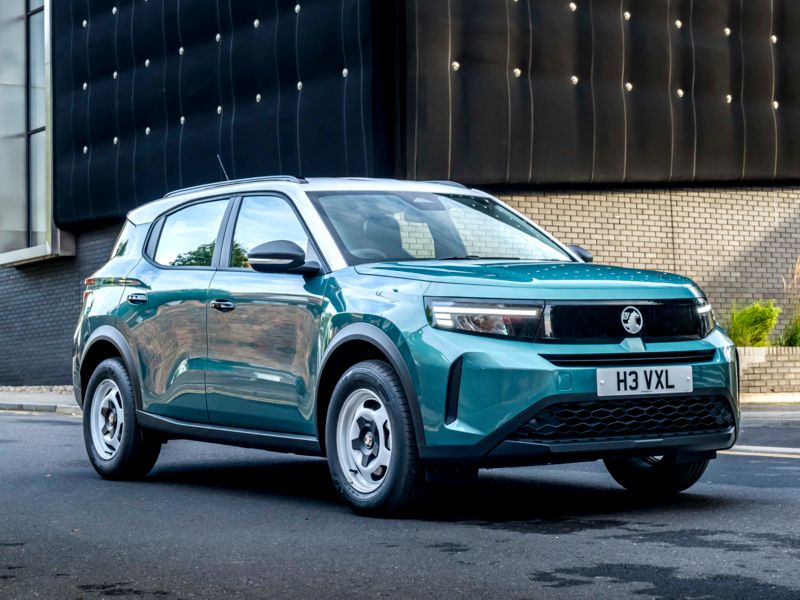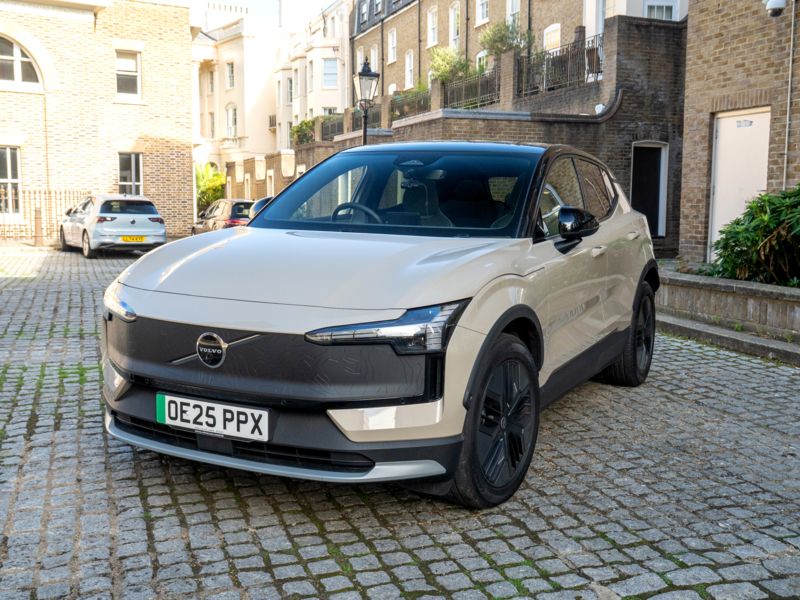By clicking a retailer link you consent to third-party cookies that track your onward journey. This enables W? to receive an affiliate commission if you make a purchase, which supports our mission to be the UK's consumer champion.
Best small SUVs and crossovers for 2026: tested by experts

How our tests find the best small SUVs
Fuel economy
Plenty of models struggle to meet their official fuel economy (mpg). We run our own, independent fuel consumption tests under lab conditions.
Braking
We conduct repeated emergency stop tests from 62mph (100kmph) and record the average distance covered over 10 attempts.
Visibility
Our lab takes a 360-degree image of each car, then analyses them to identify obstructions to the driver's view.
We also look at
Reliability based on our annual survey (unreliable cars can’t be Best Buys), comfort, practicality and more.
The best small SUVs and crossovers give you a commanding high-rise view of the road, a practical and spacious interior, and large door openings. They're also typically powered with smaller engines than larger full-sized off-roaders, giving you some of the practical benefits of 4x4 without the extra running costs.
However, despite cars in this class typically following a similar recipe, our tests continually find models that don’t meet expectations.
Pick the wrong one and you could end up driving a car with mediocre fuel economy, a frustrating driving experience, little safety equipment or so-so passenger space.
Keep reading to discover the very best small SUVs and crossovers, including new EV and hybrid models.
Or head straight to all our small SUV and crossover reviews.
Best new small SUVs and crossovers
The small SUVs we've highlighted in the lists below strike a good balance of passenger and load space, ride comfort and fuel economy.
Which? members can log in to see the which models we recommend. If you’re not already a member, join Which? to unlock our recommendations below and all of our expert impartial reviews
- £to run per year
- £to run per year
- £to run per year
Not yet ready to go electric? See the very best hybrid SUVs.
Best used small SUVs and crossovers
With so many people buying new small SUVs, there are plenty on the used market, too. Here are a few picks.
Top rated
Top rated
£to run per year- £to run per year
- best buy
Unlock reviews- Comfort and practicality
- Model reliability 0-4 years
- Brand reliability 0-4 years
Test score Digital £8.99 per month, cancel any time.
Already a member?Log in£to run per year
Our latest small SUV and crossover reviews
Want to find out how the newest small SUVs have fared in our tests? Read our latest and most recently updated reviews.
- Sign up to reveal scoreAll new and used car reviews

Toyota
C-HR Plug-in Hybrid (2024-)
£37,584Typical priceTest score Digital £8.99 per month, cancel any time.
Already a member?Log inFrom 14.04p per mile496out of 798 products for running cost - Sign up to reveal scoreAll new and used car reviews

Vauxhall
Frontera Hybrid (2025-)
£22,706Typical priceTest score Digital £8.99 per month, cancel any time.
Already a member?Log inFrom 14.31p per mile511out of 798 products for running cost Top rated
Top rated
Sign up to reveal scoreAll new and used car reviews
Volvo
EX30 Cross Country (2025-)
£47,060Typical priceTest score Digital £8.99 per month, cancel any time.
Already a member?Log inFrom 9.17p per mile106out of 798 products for running cost
Disappointing small SUVs
Pick a dud and you could end up with a car that costs a fortune to run, expels way too many pollutants, is behind the curve for safety or is just generally annoying to live with.
Be confident in your choice by checking our reviews; below we've picked some low-scoring models to show you how easy it is to pick a dud if you don't do your research.
- Unlock reviews
- Comfort and practicality
- Model reliability 0-4 years
- Brand reliability 0-4 years
Test score Digital £8.99 per month, cancel any time.
Already a member?Log in£to run per year - £to run per year
- £to run per year
What is a crossover?
This term is typically used to describe smaller SUVs, which are a 'crossover' between a conventional small hatchback and a full-sized 4x4. A classic example is the VW T-Cross, which is based on the same platform as the VW Polo but with a higher ride and more interior space.

Small or large SUV: what's best?
If you plan to regularly venture on to rough tracks or go off-road entirely, you should at least consider a model with full four-wheel drive.
Small SUVs may look like 4x4s – and they should cope just fine with the occasional gravel track – but there aren't many that will tackle real off-road conditions with ease.
To improve efficiency, many crossover models are two-wheel drive and are designed primarily for use on tarmac.
Full-sized SUVs and 4x4s are sometimes fitted with locking differentials and low-range gearboxes – off-road-specific hardware that you’ll struggle to find on the spec list of nearly all crossovers.
Some crossover models now come with multi-mode traction control systems in place of four-wheel drive. These allow the driver to select the best setup for different surfaces (gravel or snow, for example), with the system altering its intervention to allow for the best possible traction.
If you want a vehicle to take off-road, see our expert pick of the best large SUVs and 4x4s.
What to look for when buying a small SUV
A higher driving position is one of the benefits of owning a crossover SUV, giving a commanding view of the road.
However, depending on model, you may not be any better off in terms of load space or passenger comfort by paying the premium for a small SUV over a similarly sized alternative.
As these cars are typically higher off the road, the seats are higher and thus easier to get into, which can be helpful for those who struggle to get in and out of conventional cars that are lower to the floor.
From dealerships to classifieds, we reveal the best place to buy a car.

How we test cars
Because Which? is independent, you can trust our reviews to give you the full, honest and impartial truth about every car we test.
Every car we review is subjected to more than 300 individual tests in a lab, on a test track and on real roads, allowing us to report accurate miles-per-gallon figures that you can rely on.
Testing in controlled lab conditions means the results we collect are directly comparable between different cars, helping us determine which models are better and helping you find the perfect vehicle for your needs.
And so you know which models are likely to prove reliable for years to come, we also gather feedback from thousands of UK car owners through the annual Which? Car Survey and use it to generate detailed reliability ratings for the cars we test.
For more information, see our guide on how we test cars.
To take the guesswork out of choosing your next car: use our independent car reviews.
Compare car insurance
Find the right policy for your vehicle using the service provided by Confused.com
Get a quote now